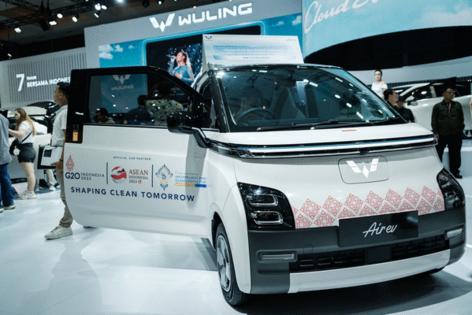Foreign automakers look to leverage strengths as Chinese brands dominate home market
Published in Automotive News
Once attracting great numbers of sales and plenty of investment from global automakers, China is now increasingly being dominated by its own domestic manufacturers — leaving foreign rivals there mostly on the outside looking in.
General Motors Co. is losing money in China. Ford Motor Co. isn’t spending on capital expenditures there. Tesla Inc. is struggling, and Volkswagen AG is, too. It's not likely to get easier anytime soon, industry executives and analysts say.
Global automakers agree they have to be in China, the world’s largest automobile market. But the communist government’s support for domestic leadership in new energy vehicles, mandates, subsidies and patriotism have challenged the abilities of foreign companies to gain market share. Now, GM is moving upscale, Tesla is pursuing greater autonomous capabilities, and Ford is relying on its strengths and local partners to keep a foothold.
"The Chinese saw that it was going to be difficult for them to get a global champion in the internal combustion space and the gas and engine space, and they saw electrification as an opportunity to leapfrog ahead," said John Lawler, Ford's chief financial officer and former Ford China CEO, in an interview. "China had pivoted towards electrification before most of the global OEMs had.
"Due to that and the timing of that, they are ahead, but I would say that the global manufacturers are catching up and working to catch up with them. We're in the early stages of this transformation, and we'll see how it plays out as we move through."
There were 30 million vehicles sold in China last year, according to the China Association of Automobile Manufacturers. That’s nearly double the total vehicles sold in the United States — and still growing as China’s middle class continues to develop. It's also the largest market in the world. Shenzhen-based electric vehicle maker BYD Co. Ltd. outsold Germany's Volkswagen there for the first time. Non-domestic, global automakers represent 45% of the market, down from 56% pre-pandemic, according to data analytics firm GlobalData Plc.
The threat of Chinese automakers extends outside Asia, too. Automotive executives are making product development strategies based on the potential for increasing availability of products from the Chinese in the United States. The European Commission has already warned Chinese vehicles could represent 15% of European sales in 2025.
The days of guessing which China-made vehicle on a lot was good, because many of the marques were unproven, are in the past. More than two decades ago, China realized its inability to compete with Western carmakers on internal combustion engines, and domestic manufacturers were incentivized to look to new-energy vehicles because of energy security, industrial competitiveness and sustainability. As a result, supply chains for EVs and their batteries developed through China. BYD, to name one, was a battery manufacturer before making vehicles.
"BYD is the poster child of what has gone right," said Jeff Schuster, vice president of automotive research at GlobalData. "For them to make that pivot from ICE vehicles to full battery electric lineup so quickly, and their market share has supported that."
Arguably, Schuster said, that kind of success is only possible in China because of centralized power, influence and ownership over some companies: "These pivots are made because of mandates or initiative with the government, whereas non-state owned firms or shareholder-owned companies can’t do it as quickly. Margin and profitability and shareholder return all play a role. You don’t have that with the Chinese domestic brands."
...continued
©2024 www.detroitnews.com. Visit at detroitnews.com. Distributed by Tribune Content Agency, LLC.







Comments